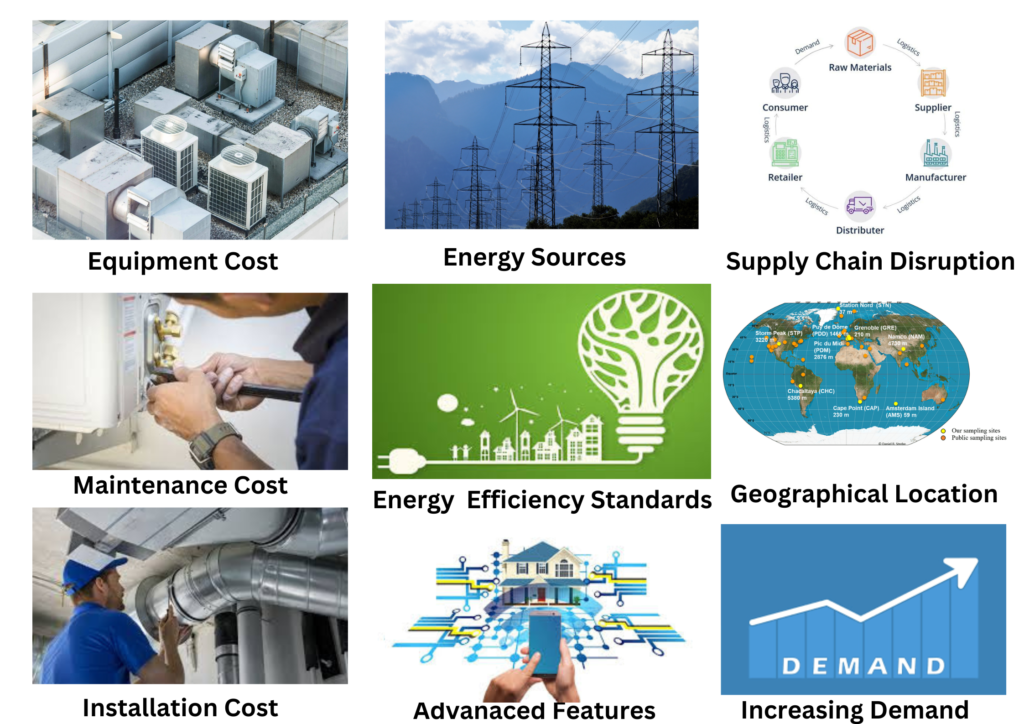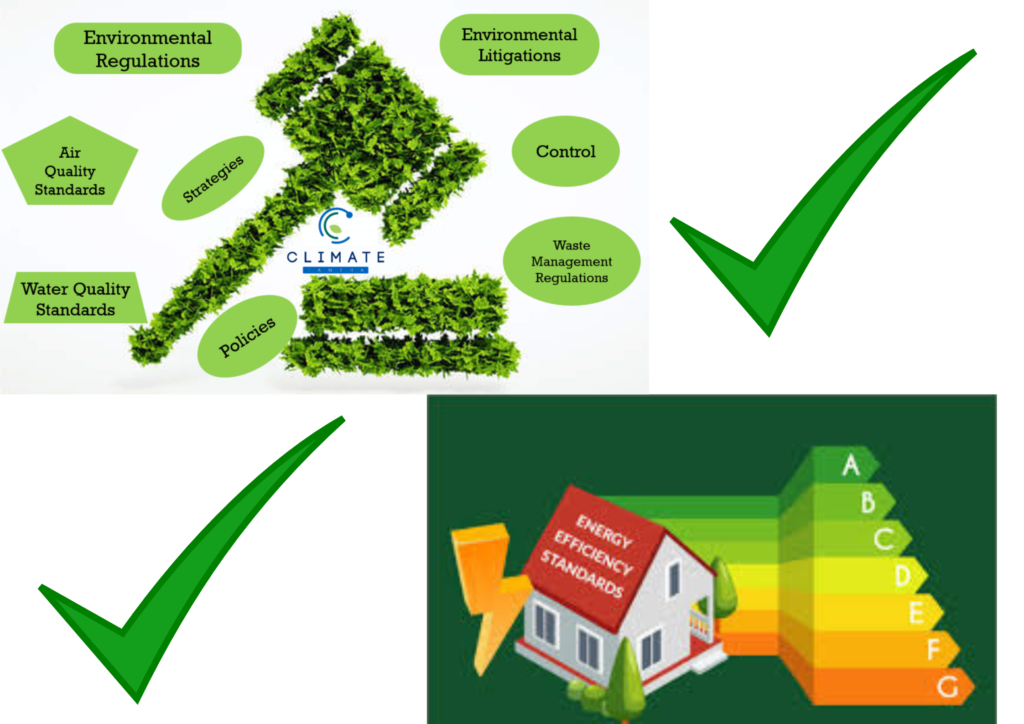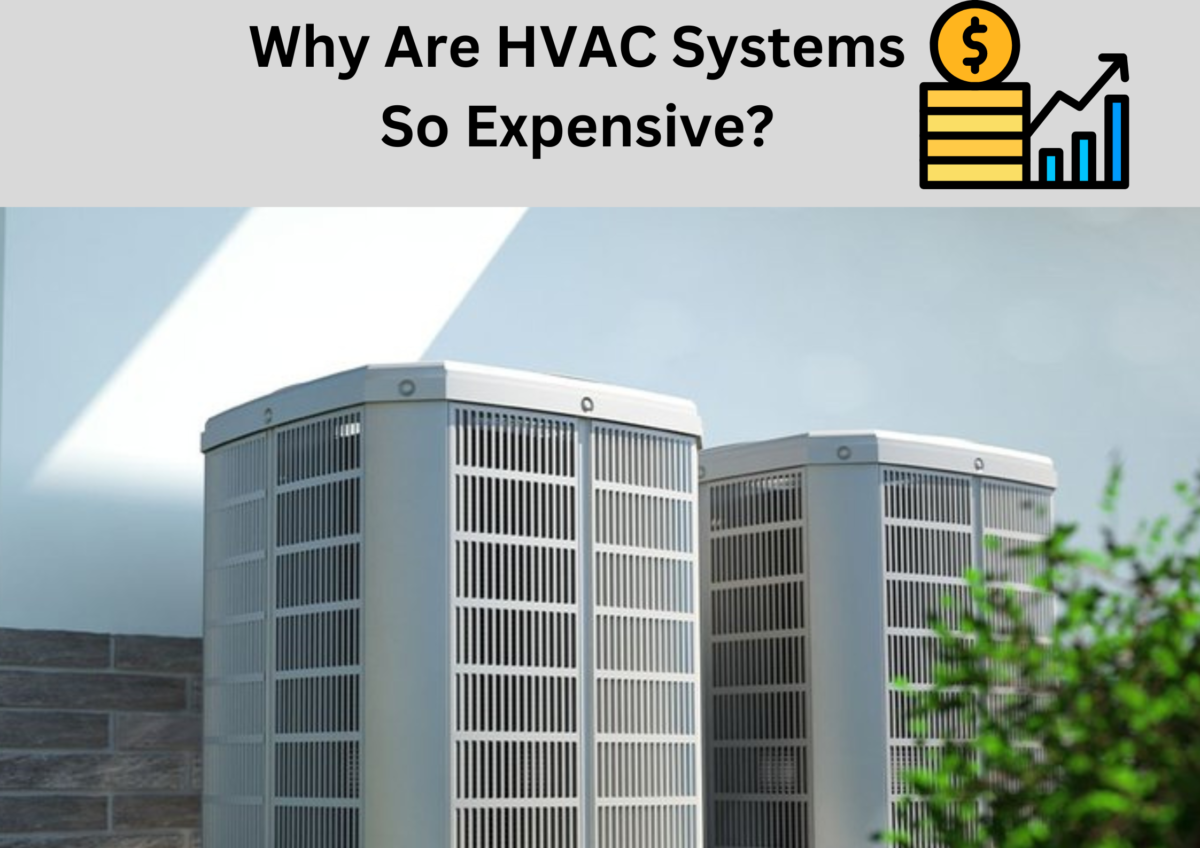You must have noticed that the prices of HVAC systems are steadily increasing in recent years. Are you wondering why these HVAC systems are becoming more expensive?
This article explains the 10 most important reasons behind the commonly asked question “Why are HVAC systems so expensive?”. From equipment cost, energy efficiency standards, and environmental regulation acts to supply chain disruption, and many more, this article gives you a clear idea about the rising price of HVAC systems.
What Is an HVAC System?
HVAC signifies heating, ventilation, and air conditioning. HVAC systems are used in both residential and commercial buildings. It is a complete home comfort system that provides heated and cooled air to make you feel warm and cozy in winter and fresh and cool in summer.
AN HVAC system also contains filters that capture airborne particles, viruses, bacteria, etc., and supplies clean and purified air. It maintains the humidity of the indoor area at the optimal level and thus creates a healthy environment to live in.
Basic Components of an HVAC System
Heating Unit
AN HVAC system consists of a furnace, a boiler, or, a heat pump to warm an internal space. The heating unit uses various resources like natural gas, oil, electricity, or, propane to generate heat.
Furnace: It generates heat by burning fuel sources such as oil, natural gas, or, propane. The heated air is then circulated inside the indoor space to create a warm environment.
Heat Pump: The heat pump provides both the heated and cooled air. It does not use fuel sources rather it uses electricity for operation. To make the indoor space cooler it pumps out the warm air from the indoor space to the outside and to make the indoor space warmer it reverses the flow and pumps hot air into the indoor space.
Boiler: The boiler heats water and supplies the hot water or the steam to increase the temperature of the indoor area.
Air Conditioning Unit
An air conditioning system consists of an indoor unit with an evaporator coil and an outdoor unit that comprises a compressor, and a condenser. This unit supplies cooled air by removing the heat and humidity from the indoor space.
Ventilation Unit
The ventilation unit maintains the airflow to enhance the effectiveness of the heating or air conditioning unit. The air handlers circulate both the heat and warm air all throughout the indoor space. The duct work carries and distributes the conditioned air from the systems like furnaces, air conditioning systems, and heat pumps. It also uses filtration techniques to improve the indoor air quality.
Why Are HVAC Systems So Expensive?

Equipment Cost
The manufacturers pass the manufacturing cost to the consumers. If the manufacturing cost becomes higher it leads to an increase in the prices of HVAC systems. The prices of HVAC systems are getting higher because of the rising cost of materials and equipment.
Raw materials such as aluminum, steel, and refrigerants are crucial for HVAC system manufacturing. Most of these raw materials are imported from other countries. Again, the ongoing trade wars and rising tariffs make the raw materials cost even more. The higher prices of raw materials increase the cost of producing each unit of an HVAC system.
The manufacturers pass the increased cost of the equipment to consumers and this makes the HVAC system to become more expensive.
Installation Cost
The HVAC system contains several important parts like a furnace, compressor, condenser coil, ductwork, blower motor, etc. The system is very complex and you need trained professionals to install the HVAC system.
The installation of the HVAC system is very crucial as it improves the efficiency and life span of the system. The installation cost varies depending on the complexity of the job, the place where you live, and the experience of the person who is doing the job.
Once installed the system needs to be maintained regularly to maintain its efficiency. The HVAC system is expensive due to the inclusion of installation costs, routine services, and regular maintenance costs.
| Split System | |||
| 1000 to 2000sq. ft. | 2000 to 3000sq. ft. | 3000 to 4000sq. ft. | |
| Install a new AC Unit | Price ranges between $3000 to $12000 | Price ranges between $7000 to $16000 | Price ranges between $10000 to $20000 |
Maintenance Cost
To maintain the efficiency of the HVAC system, it needs regular maintenance. Routine maintenance helps you know about the little damages and need for repair before they get damaged permanently and this costs you even more. The maintenance cost of these HVAC systems is also very high which in turn increases the overall price of these systems.
Energy Efficiency Standards
If a system consumes less energy to operate and to produce the equivalent output, then the system is called energy efficient. The efficiency rating on the HVAC system signifies how well the system converts energy into heating or, cooling.
An energy-efficient HVAC system uses less power and thus produces less electricity bills. These systems are environmentally friendly as they emit less carbon dioxide to the environment.
The initial cost of these energy-efficient HVAC systems is much higher than the ordinary ones. But in the long run, they save a lot of money on electricity bills.
These systems incorporate some advanced technology like the implementation of sensors, temperature control devices, etc. which reduces energy waste. The sensor inside the system makes it automatically turn off when the room is unoccupied. The temperature controller regulates the temperature inside the indoor space according to the climate outside.
The cooling efficiency of the air conditioner or heat pump is denoted by SEER (Seasonal Energy Efficiency Ratio) ratings and the heating efficiency of the furnace is denoted by AFUE (Annual Fuel Utilization Efficiency) ratings.
These extra features and the high energy efficiency ratings make the HVAC system costs higher than the regular ones.

Environmental Regulations and Standards
The main purpose of the implementation of environmental regulation standards on HVAC systems is to reduce energy consumption and to make it environmentally friendly by reducing the emission of greenhouse gases.
Government regulations, such as the Energy Policy Act of 2005 and the American Clean Energy and Security Act of 2009 have set guidelines for manufacturers to give more importance to energy efficiency.
The Department of Energy (DoE) is constantly emphasizing HVAC system manufacturers to implement advanced technologies and reengineer and redesign the products to invent some environmentally friendly HVAC systems.
To implement these environmental regulations and standards, the company has to completely renovate and redesign its factory setup. These investment costs pass on to consumers and thus it makes the HVAC system costlier.
Fuel or, Energy Source
The types of energy sources utilized in HVAC systems to get conditioned air influence the cost of the HVAC system. Natural gas, oil, and electricity are the most commonly used energy sources in HVAC systems.
Natural gas is an environmentally friendly energy source as it burns cleanly and efficiently. However, the price of natural gas varies depending on where you live. In some locations, its price is very high which makes the HVAC system more expensive.
The places where natural gas options are not available people often use oil as the primary energy source to operate HVAC systems. Again, as oil is usually costlier than natural gas, it is also another reason behind the rising price of HVAC systems.
To operate the HVAC system with electric energy is a great option where the cost of electricity is affordable. However, the cost of electricity is higher than oil and natural gas. This type of HVAC system needs additional electric infrastructure for operation which increases the installation cost of the HVAC system.
Nowadays geothermal energy is used to run an HVAC system. The geothermal HVAC systems are environmentally friendly and highly efficient. But, the upfront cost of a geothermal HVAC system is very high. However, in the long run, it saves a lot of energy bills.
Advanced Features
The implementation of advanced technologies makes the HVAC system more advanced than ever. The HVAC systems with advanced features like sensors, smart thermostats, high-powered air filtration technology, predictive control technology, etc. are more expensive than the systems with regular features.
Supply Chain Disruption
The supply chain is a complex logistics system that transforms the raw materials into final products and the products then get distributed among consumers.
In the supply chain first, raw materials like aluminum, steel, etc. are collected and transported for the refining process. The refined products are manufactured to produce small parts of the system. The small parts are then manufactured into the final products. The final products are then checked, packed, and transported to the dealers. Finally, the consumers buy these final products from local shops or service companies.
This is a complex network in which disruption occurs due to global pandemics, trade disputes, and natural disasters. Due to the supply chain disruption, the production process gets delayed, and the unavailability of a new HVAC system consecutively increases the price of the system.
Increasing Demand
When the demand for HVAC systems rises, the manufacturers may increase the price of HVAC systems to maximize their benefits. The population growth, the renovation drives, and the beginning of some new and vast projects increase the demand for new HVAC systems.
Geographical Factors
The cost of an HVAC system varies according to the geographical location where you live. The labor charges to install an HVAC system are much higher in urban areas than in rural areas. The regular maintenance and repair costs are much higher in city areas.
If you are living in a location where the direct transportation facility is not smooth, then it may influence the price rise of the HVAC system. If you are living in an interior place, then the transporting cost of all the equipment, raw materials, energy source, etc. becomes high. Thus, all these factors play a significant role in increasing the price of HVAC systems.
Conclusion
The HVAC system is expensive due to the inclusion of installation costs, routine services, and regular maintenance costs. The energy sources such as natural gas, oil, electricity, or, geothermal energy utilized in HVAC systems to get conditioned air influence the cost of the HVAC system.
The increasing demand for HVAC systems along with the supply chain which is a complex network in which disruption occurs due to various reasons also increases the cost of HVAC systems. Again the implementation of advanced features in this system makes it costlier than the regular ones.
The involvement of energy efficiency standards and environmental regulations standards are some of the most common reasons behind the rising cost of HVAC systems.
Also Read
- What Size of HVAC System Do I Need? 2024
- What Is the Most Efficient HVAC System and Why? 2024
- Types of HVAC Systems in Apartments 2024
- HVAC System Working Principle
- HVAC System Vs Air Conditioning System: 6 Major Differences
- What Are the Most Common Types of HVAC Systems? 2024
- 6 Types of HVAC Systems for Homes 2024
- How Does a Refrigerator Work? A Step-by-Step Guide 2024
- 8 Reasons Why Refrigerator Not Cooling and Solutions
- Side By Side Vs French Door Refrigerator 2024
- Counter Depth Refrigerator vs. Standard Refrigerator: Which One Is Better?
- Where Should I Place My Air Purifier? 2024
- How Do You Know If You Need an Air Purifier? 2024
- HEPA Air Purifier: Definition, Types, Uses, Efficiency, Working Principle
- Whole House Air Purifier: Types, Pros, Cons, Working Principle 2024
- Air Purifier Advantages and Disadvantages
- How Do Air Purifiers Help? 6 Benefits
- Whole House Dehumidifier: Types, Working Principle, Pros, Cons 2024
- How Does a Commercial Dehumidifier Work? 2024
- How Does a Dehumidifier Work? Types, Uses, Benefits 2024
- 10 Tips for Buying a Dehumidifier
- Dehumidifier Vs Air Purifier 2024
- Dehumidifier vs. Air Conditioner 2024
- Cool Mist Humidifier: Types, Uses, Benefits, Working Principle 2024
- Do Humidifiers Help with Air Quality? 2024


2 thoughts on “Why Are HVAC Systems So Expensive? 10 Most Common Reasons”